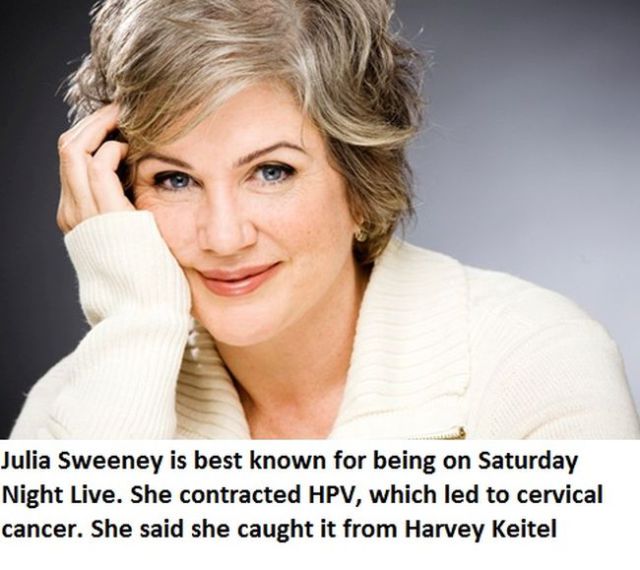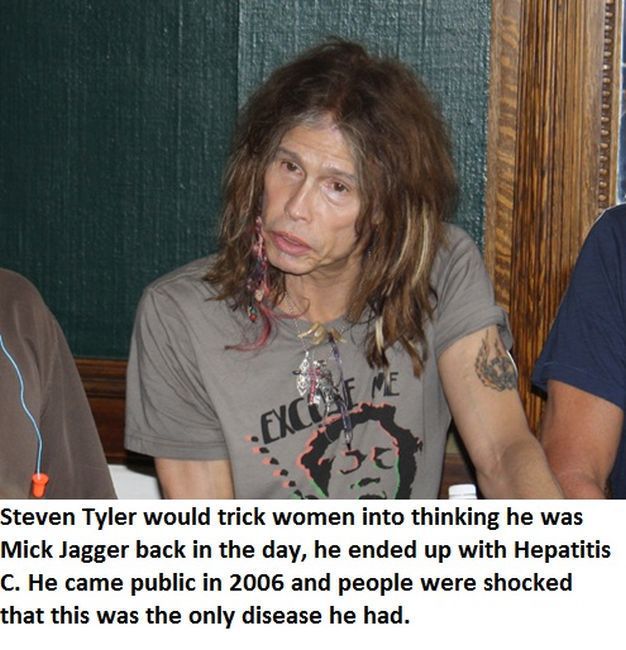Do we hold celebrities to impossibly high standards of personal conduct, forgetting that they are, at their core, just as human as we are? The reality is that fame offers no immunity against the vulnerabilities of human life, including the risk of sexually transmitted diseases (STDs).
The topic of celebrities and STDs is often shrouded in secrecy and speculation, fueled by tabloid rumors and whispers in the entertainment industry. It's a sensitive subject that intersects with issues of personal privacy, public health, and the often-harsh judgment of the media. While some celebrities have chosen to be open about their experiences with STDs, aiming to raise awareness and reduce stigma, many others understandably prefer to keep their health information private. This reluctance to disclose is often driven by fear of public shaming, career repercussions, and the potential for damage to their personal lives.
The entertainment industry, with its fast-paced lifestyle, constant travel, and social pressures, can create an environment where the risk of contracting an STD is elevated. Long hours, frequent parties, and the temptation to engage in casual relationships can contribute to increased vulnerability. Furthermore, the pressure to maintain a certain image can make it difficult for celebrities to openly discuss their sexual health concerns or seek treatment without fear of judgment.
- Watch Movierulzkannadain New Kannada Movies Online
- Download Don Telugu Movie 2022 Movierulz Watch Now
It's important to remember that STDs affect people from all walks of life, regardless of their social status, income, or fame. While the details of individual celebrity cases are often sensationalized, the underlying issue is a serious public health concern that deserves attention and understanding. Open and honest conversations about STDs are essential for reducing stigma, promoting prevention, and ensuring that everyone has access to the information and resources they need to protect their health.
The prevalence of STDs is a significant global challenge. According to the World Health Organization (WHO), more than 1 million STDs are acquired every day worldwide. Many STDs are asymptomatic, meaning that people may not know they are infected, which can lead to delayed diagnosis and treatment, as well as unintentional transmission to others. Common STDs include chlamydia, gonorrhea, syphilis, herpes, human papillomavirus (HPV), and HIV.
While the specifics of celebrity STD cases are often the subject of rumor and speculation, it is more constructive to focus on the broader implications for public health. Education, prevention, and destigmatization are crucial for addressing the spread of STDs. By promoting responsible sexual behavior, encouraging regular testing, and providing access to affordable healthcare, we can create a society where everyone feels empowered to protect their health and well-being.
- 2024 Kannada Movies Releases Reviews More Your Ultimate Guide
- Movierulz 2025 Your Guide To South Indian Cinema Movie Reviews
The media plays a significant role in shaping public perception of STDs. Sensationalized reporting and judgmental commentary can contribute to stigma and shame, making it more difficult for people to seek help. On the other hand, responsible reporting that focuses on education, prevention, and destigmatization can help to promote a more informed and compassionate understanding of STDs.
Several celebrities have, despite the risks, chosen to publicly share their experiences with STDs, using their platform to raise awareness and challenge stigma. These individuals have often faced criticism and judgment, but their courage in speaking out has helped to normalize conversations about sexual health and encourage others to seek testing and treatment. Their stories serve as a reminder that STDs are not a source of shame, but rather a common health issue that can be managed with proper care.
The impact of STDs extends beyond individual health. Untreated STDs can lead to serious complications, including infertility, chronic pain, and increased risk of certain cancers. In pregnant women, STDs can be transmitted to their babies, causing severe health problems. Therefore, it is essential to prioritize prevention and early detection to protect the health of individuals and communities.
The discussion surrounding celebrities and STDs often raises questions about privacy and the public's right to know. While celebrities are public figures, they also have a right to privacy regarding their personal health information. The media has a responsibility to balance the public's interest with the individual's right to privacy, avoiding sensationalism and focusing on the broader public health implications.
The issue of STDs among celebrities is a complex one, with no easy answers. It highlights the challenges of living in the public eye, the importance of sexual health education, and the need to reduce stigma surrounding STDs. By fostering open and honest conversations, promoting responsible sexual behavior, and ensuring access to healthcare, we can create a society where everyone feels empowered to protect their health and well-being.
Many health organizations and advocacy groups are working to address the global STD crisis. These organizations provide education, testing, treatment, and support services to individuals and communities affected by STDs. They also advocate for policies that promote sexual health and reduce stigma. By supporting these organizations, we can contribute to a healthier and more informed society.
The digital age has brought both opportunities and challenges in the fight against STDs. Online resources can provide valuable information and support, but they can also be a source of misinformation and stigma. It is important to critically evaluate online information and seek advice from trusted healthcare professionals. Social media can be a powerful tool for raising awareness and promoting open conversations about sexual health, but it can also be used to spread rumors and perpetuate stigma. Responsible use of digital platforms is essential for promoting accurate information and fostering a supportive online environment.
Ultimately, addressing the issue of STDs requires a multifaceted approach that includes education, prevention, testing, treatment, and destigmatization. By working together, individuals, healthcare providers, policymakers, and the media can create a society where everyone has the knowledge, resources, and support they need to protect their sexual health.
It's crucial to emphasize that having an STD is not a moral failing. It's a health condition that can be managed with proper care. Shaming and stigmatizing people with STDs only serves to drive them underground, making it less likely that they will seek testing and treatment. A compassionate and supportive approach is essential for promoting sexual health and reducing the spread of STDs.
Let's consider the impact of public perception. When a celebrity is rumored to have an STD, the immediate reaction is often one of judgment and condemnation. This reaction reflects a deeper societal stigma surrounding STDs, which is often rooted in ignorance and fear. By challenging these negative perceptions, we can create a more accepting and supportive environment for people affected by STDs.
Another important aspect to consider is the role of personal responsibility. While it's essential to address systemic issues such as lack of access to healthcare and inadequate education, individuals also have a responsibility to protect their own health and the health of their partners. This includes practicing safe sex, getting regular testing, and seeking treatment if necessary.
The entertainment industry can play a positive role in promoting sexual health. By incorporating storylines that address STDs in a realistic and informative way, television shows and movies can help to educate the public and reduce stigma. Celebrities can also use their platforms to speak out about sexual health issues and encourage others to get tested and treated.
In conclusion, the issue of celebrities and STDs is a complex one that reflects broader societal attitudes toward sexual health. By promoting education, prevention, and destigmatization, we can create a more informed and compassionate society where everyone feels empowered to protect their health and well-being. It's time to move beyond judgment and condemnation and embrace a more supportive and understanding approach to sexual health.
To illustrate the kind of information that might be relevant, here's a table example:
| Category | Information |
|---|---|
| Full Name | [Celebrity's Full Name] |
| Birth Date | [Date of Birth] |
| Place of Birth | [City, State, Country] |
| Occupation | [Primary Occupation, e.g., Actor, Singer] |
| Years Active | [Year Started - Present] |
| Known For | [Notable Achievements or Roles] |
| Relationship Status | [Married, Single, Divorced - If Publicly Known and Relevant] |
| STD Disclosure (If Applicable) | [Brief, factual statement about their disclosure, if any] |
| Activism/Advocacy (If Applicable) | [Details of any activism related to STD awareness] |
| Official Website | Official Website |
It is very important to respect the privacy of individuals and to avoid spreading misinformation or rumors. Focus on the positive message of awareness and prevention.
The stigma surrounding STDs is a major barrier to prevention and treatment. People who feel ashamed or embarrassed about their sexual health are less likely to get tested or seek medical care. This can lead to delayed diagnosis and treatment, as well as increased risk of transmission to others. By challenging this stigma, we can create a more open and supportive environment where people feel comfortable discussing their sexual health and seeking help when they need it.
Education is key to preventing the spread of STDs. Comprehensive sexual health education should be provided in schools and communities, starting at a young age. This education should cover topics such as safe sex practices, the importance of regular testing, and the availability of treatment options. By empowering people with knowledge, we can help them make informed decisions about their sexual health.
Access to affordable healthcare is also essential for preventing and treating STDs. Many people lack access to basic healthcare services, including STD testing and treatment. This is particularly true for marginalized communities, such as people of color, low-income individuals, and LGBTQ+ individuals. By expanding access to healthcare, we can ensure that everyone has the opportunity to protect their sexual health.
Public health campaigns can be effective in raising awareness about STDs and promoting prevention. These campaigns can use a variety of channels, such as television, radio, print, and social media, to reach a wide audience. Effective campaigns should be informative, engaging, and non-judgmental. They should also be tailored to specific communities and populations.
Research plays a crucial role in the fight against STDs. Scientists are constantly working to develop new and improved methods for preventing, diagnosing, and treating STDs. This research includes the development of new vaccines, diagnostic tests, and treatments. By investing in research, we can accelerate progress in the fight against STDs.
Collaboration is essential for addressing the global STD crisis. Governments, healthcare providers, researchers, community organizations, and individuals must work together to prevent the spread of STDs. This collaboration should be based on shared goals, mutual respect, and a commitment to evidence-based strategies. By working together, we can create a healthier and more equitable world for all.
The legal and policy environment can also impact the prevention and control of STDs. Laws and policies that promote sexual health, such as those that ensure access to contraception and confidential STD testing, can help to reduce the spread of STDs. Conversely, laws and policies that restrict access to these services can have a negative impact on sexual health.
The role of technology in addressing STDs is growing. Mobile apps, online resources, and telehealth services can provide convenient and accessible ways for people to learn about STDs, get tested, and receive treatment. However, it is important to ensure that these technologies are accurate, reliable, and accessible to all.
The long-term impact of STDs on individuals and communities should not be underestimated. Untreated STDs can lead to chronic health problems, infertility, and even death. The social and economic costs of STDs are also significant. By investing in prevention and treatment, we can reduce the burden of STDs on individuals and communities.
It is important to recognize the diversity of experiences related to STDs. People from different backgrounds, cultures, and communities may have different beliefs, attitudes, and practices related to sexual health. It is essential to tailor prevention and treatment efforts to meet the specific needs of these diverse populations.
The ethical considerations surrounding STDs are complex. Issues such as confidentiality, informed consent, and mandatory testing raise important ethical questions. It is important to address these ethical considerations in a thoughtful and transparent manner.
The future of STD prevention and control depends on our collective efforts. By prioritizing education, prevention, testing, treatment, and destigmatization, we can create a healthier and more equitable world for all. It is time to move beyond judgment and condemnation and embrace a more supportive and understanding approach to sexual health.
And remember, celebrities, like everyone else, are susceptible to human conditions. Understanding and empathy are paramount.
The constant scrutiny that celebrities face can exacerbate the challenges associated with managing an STD. The fear of exposure and judgment can lead to increased stress and anxiety, which can negatively impact their overall health and well-being. It is important to remember that celebrities are human beings with feelings and emotions, and they deserve to be treated with respect and compassion.
The prevalence of misinformation and rumors surrounding celebrities and STDs can further complicate the issue. False accusations and sensationalized stories can spread quickly through social media and other channels, causing significant damage to a celebrity's reputation and career. It is important to be critical of the information we consume and to avoid spreading rumors or gossip.
The legal implications of STDs are also important to consider. In some jurisdictions, it is illegal to knowingly transmit an STD to another person. Celebrities who have an STD may face legal consequences if they engage in unprotected sex without disclosing their condition to their partner. It is important to be aware of the legal risks associated with STDs and to take steps to protect yourself and others.
The mental health aspects of living with an STD are often overlooked. People who have been diagnosed with an STD may experience feelings of shame, guilt, anxiety, and depression. These feelings can be particularly intense for celebrities, who are constantly in the public eye. It is important to seek professional help if you are struggling with the mental health challenges associated with an STD.
The role of social support in managing an STD cannot be overemphasized. Having a strong support network of friends, family, and healthcare providers can make a significant difference in a person's ability to cope with the challenges of living with an STD. It is important to reach out to others for support and to avoid isolating yourself.
The global impact of STDs is a pressing concern. The disproportionate impact of STDs on vulnerable populations and the need for increased global collaboration to address this challenge. By working together, we can make a significant difference in the lives of people affected by STDs around the world.
It is important to remember that having an STD does not define a person. People with STDs are still worthy of love, respect, and happiness. They should not be judged or discriminated against because of their health status. By challenging these negative stereotypes, we can create a more inclusive and accepting society for everyone.
The conversation about celebrities and STDs is just one small part of a much larger conversation about sexual health. By promoting open and honest communication, responsible sexual behavior, and access to healthcare, we can create a society where everyone feels empowered to protect their health and well-being. It is time to move beyond judgment and condemnation and embrace a more supportive and understanding approach to sexual health.



Detail Author:
- Name : Mr. Javon Grady Jr.
- Username : beau35
- Email : yborer@yahoo.com
- Birthdate : 1980-11-29
- Address : 34000 Stefan Lake Apt. 386 Port Tatyana, MD 39687-5102
- Phone : 1-602-291-5813
- Company : Glover-Zemlak
- Job : Waste Treatment Plant Operator
- Bio : Quia eum aperiam et velit est. Laudantium et voluptas ea alias vitae rerum.
Socials
tiktok:
- url : https://tiktok.com/@d'amorea
- username : d'amorea
- bio : Omnis autem eaque suscipit.
- followers : 4245
- following : 2580
facebook:
- url : https://facebook.com/alicia.d'amore
- username : alicia.d'amore
- bio : Unde voluptatem dolores autem. Officiis eius et voluptas aliquam.
- followers : 3369
- following : 1709
instagram:
- url : https://instagram.com/ad'amore
- username : ad'amore
- bio : Perferendis pariatur qui culpa quasi. Voluptas voluptas ut omnis doloremque.
- followers : 4186
- following : 1346
twitter:
- url : https://twitter.com/alicia4444
- username : alicia4444
- bio : Ex modi ipsa eos. Non est quia et excepturi optio corrupti. Maxime optio vitae nostrum velit exercitationem. Non quis beatae consequuntur aut quod nisi.
- followers : 3620
- following : 2162